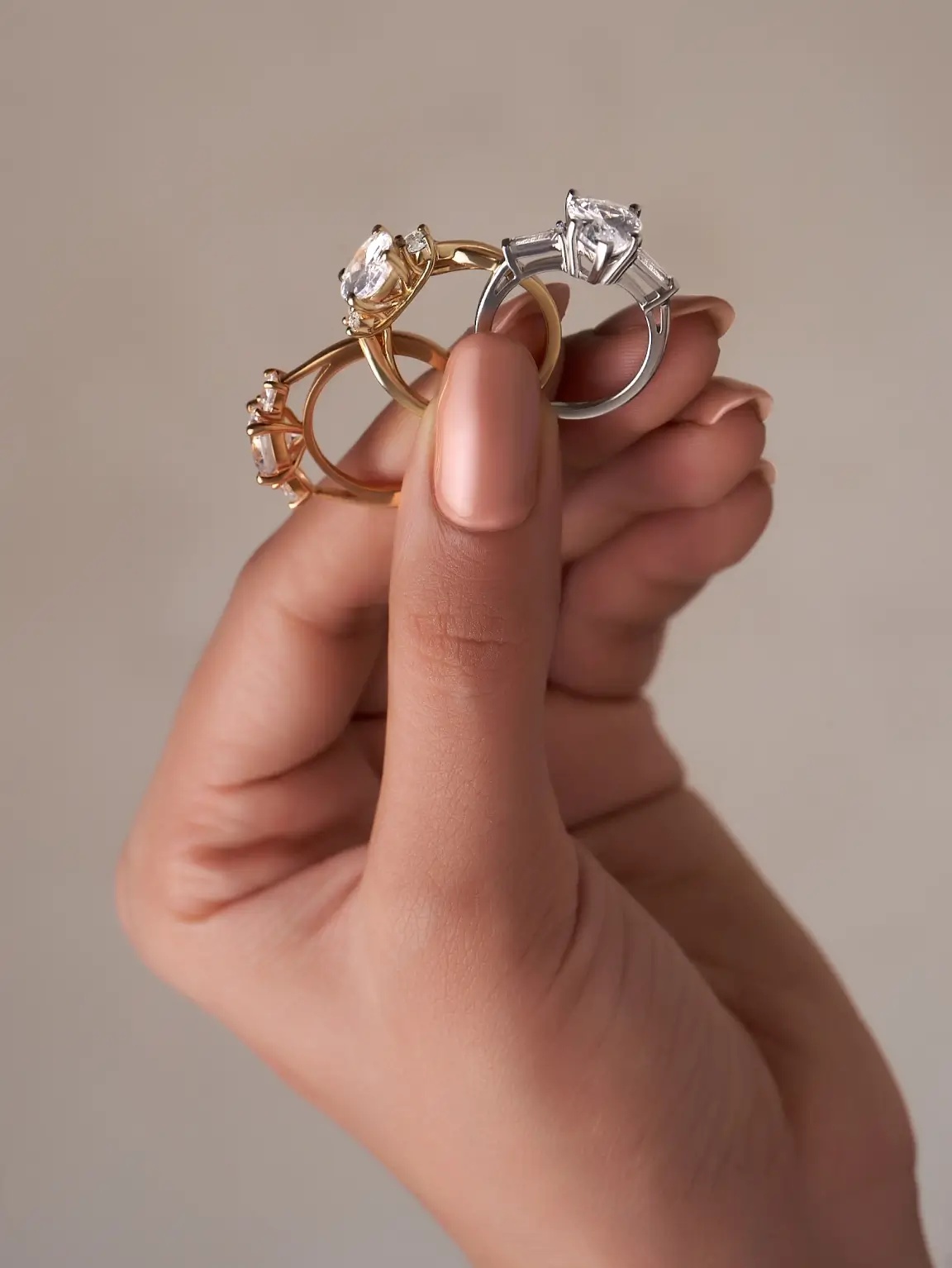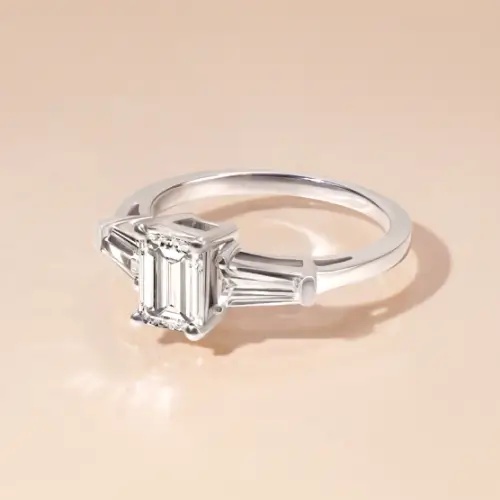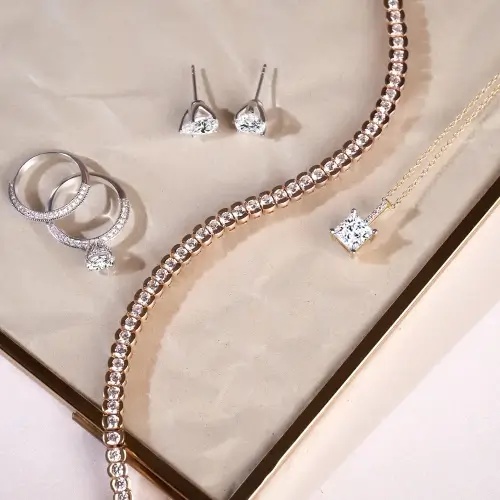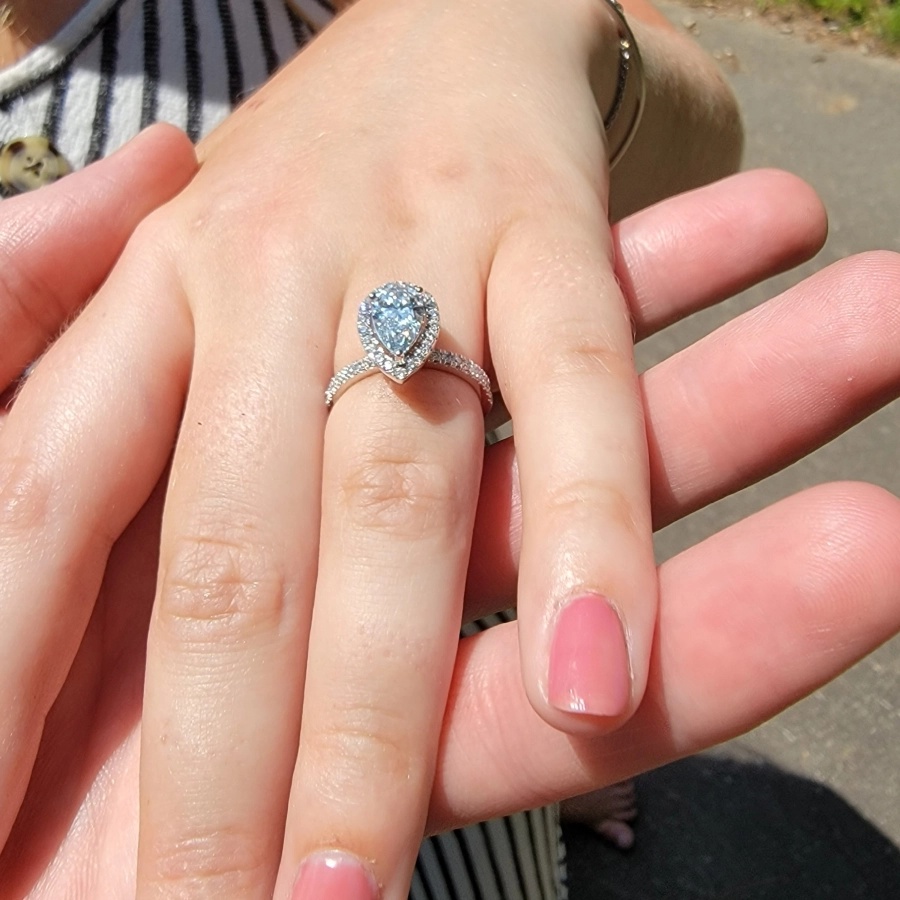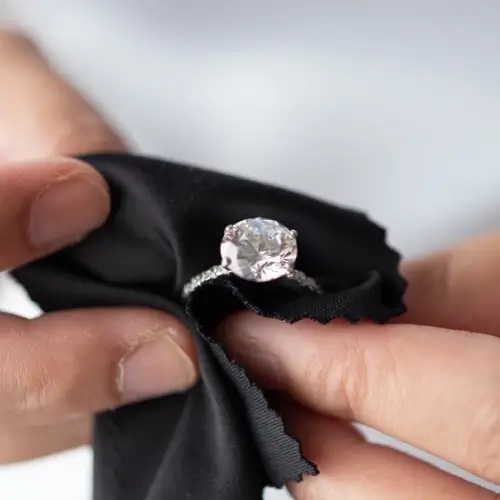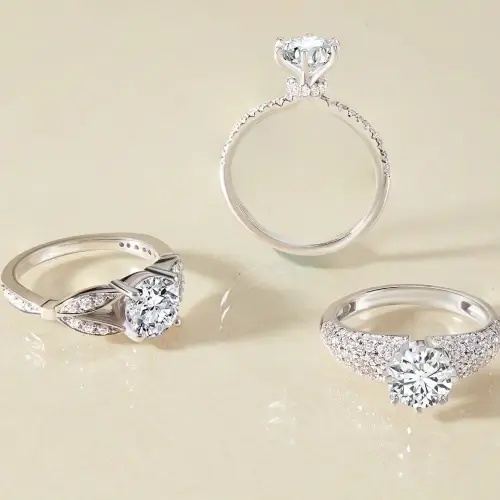An engagement ring symbolizes love and commitment, but have you ever thought about the ethical elements involved in its making? From environmental concerns to labor exploitation, the jewelry industry has an often overlooked dark side. Fortunately, there are ways to ensure that your engagement ring and fine jewelry pieces are not only beautiful but also ethically sourced and produced. In this article, we'll explore what to look for in ethical engagement rings and why it matters.
TABLE OF CONTENT
Get to Know Ethical Engagement Rings
Ethical engagement rings are crafted with eco-friendly methods and use fairly sourced materials to minimize the negative impact on the environment & society that is associated with the traditional diamond mining process. The word "ethical" gives the idea that the ring has been developed with thought for the human rights of the workers concerned in the production procedure and that all the articles used in the production of the ring have been obtained smartly.

SHOP LAB DIAMONDS rings
In the case of engagement rings, ethical reflections usually concentrate on the diamonds or gemstones used in the ring and the metal used to craft the band. Ethical engagement rings are often made with recycled metals or precious metals mined in an eco-friendly way.
Diamonds utilized in ethical engagement rings are sourced from mines that follow strict environmental and labor principles and are free from conflict or exploitation. Ultimately, ethical engagement rings provide a way for jewelry enthusiasts to favorably impact their purchase by assisting brands that emphasize sustainability and ethical approaches.
The Significance of Picking Ethical Engagement Rings
Social Responsibility
By choosing an ethical engagement ring, you are taking responsibility for the social impact of the jewelry industry. The Kimberley Process guarantees that those who mine and make the ring receive fair wages and work in secure environments. Fairtrade methods are frequently used to produce ethical engagement rings to encourage sustainable growth in the local areas where gemstones are mined.
Environmental Responsibility
Environmental effects from mining and manufacturing traditional engagement rings might be severe. Contrarily, ethical engagement rings are frequently made utilizing eco-friendly procedures, such as employing recycled metals and reducing waste.
Conflict-free
Conventional engagement rings frequently include diamonds or gemstones extracted from individuals exploited or forced to labor in hazardous conditions, war zones, or both. Ethical engagement rings guarantee a conflict-free certification and ethical sourcing of diamonds and gemstones.
Personal Values
Many individuals find it compatible with their particular values and views to select an ethical engagement ring. It is a means for them to declare the sort of society they wish to live in and the principles they support.
The Impact of Diamond Mining on the Environment & Human Rights
Diamond mining may have a substantial effect on the environment and human rights. Taking ore-containing diamonds out of open-pit or underground mines is part of the mining process. The soil erosion, deforestation, and water contamination from this process are all harmful.
Furthermore, heavy machinery, chemicals, and explosions might harm the habitats and ecosystems around us. Human rights issues, such as forced labor, child labor, and worker abuse, can also occur in diamond mining.

Diamonds mined in war zones and sold to fund violent opposition to governments are frequently called "conflict diamonds" or "blood diamonds." These illegally mined diamonds are typically connected to human rights abuses and used to fund tyranny, violence, and exploitation. The Kimberley Process promotes sustainability and the ethical mining practices used in the diamond industry to halt the trade in conflict diamonds.
The Difference between Ethical & Conflict-Free Diamonds
Though frequently used synonymously, conflict-free diamonds and ethical diamonds have different connotations. Diamonds classified as conflict-free have no connection to violent conflict or human rights violations. By tracking the diamonds from the moment of mine to the point of sale, the Kimberley Process assures that they do not originate from unethical sources. Despite the possibility of conflict-free diamonds, ethical diamonds also address more significant issues such as worker safety, wage equity, and environmental impact.

SHOP LAB DIAMONDS
Stones to Consider for Ethical Engagement Rings
Investigating the origins of the diamonds and other elements used in the ring and the jeweler's business methods is necessary when looking for and purchasing an ethical engagement ring. Finding certified conflict-free diamonds is the first step. These diamonds may be found through the Kimberley Process Certification Scheme or other reliable certification systems.
Furthermore, recycled or lab-grown diamonds, which have a considerably less environmental effect than traditional mining, can be used to create ethical engagement rings. Choosing a ring made of recycled or ethically sourced metals is also crucial. Considerable consideration should be given to the metal used in the ring, such as gold or platinum. The jeweler's supply chain should prioritize sustainable environmental policies and fair labor practices, so make sure of this last point by investigating the jeweler's business operations.
Ideal Price & Budget for Ethical Engagement Rings
The cost of ethical engagement rings might vary according to the materials used and the jeweler's pricing policy. While some ethical alternatives could cost more than conventional diamond rings, others might be equally expensive or even cheaper. For instance, lab-grown or recycled diamonds may be more affordable than naturally mined diamonds. Consider deciding on a price range that fits your tastes and financial position if you want to stick to a budget for an ethical engagement ring. You can also look for jewelers offering various payment plans or financing options to acquire a more affordable price. Look for alternative settings for ethical engagement rings, such as vintage and conventional ring designs.

SHOP LAB DIAMONDS engagement rings
Supporting Jewelry Companies with Ethical & Sustainable Practices
One effective strategy for encouraging ethical and sustainable business practices in the jewelry sector is to support them. To find ethical jewelry businesses:
-
Learn about their sourcing and manufacturing methods. This will help you confirm that they prioritize fair labor, environmental sustainability, and ethical practices.
-
Look for reputable certificates that prove a product or service complies with strict ethical guidelines.
-
Consider brands that employ lab-grown diamonds or recycled materials as well, as they impact the environment less than conventional mining.
At Friendly Diamonds, we prioritize ethical and environmentally friendly procedures while creating our lab-grown diamond jewelry. Our lab-grown diamonds are produced with the least environmental effect possible by employing water-saving and renewable energy techniques. We make sure that our diamonds are ethically sourced and completely conflict-free.


